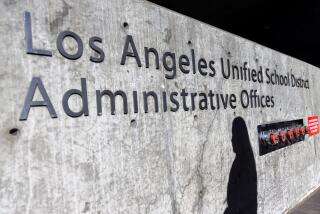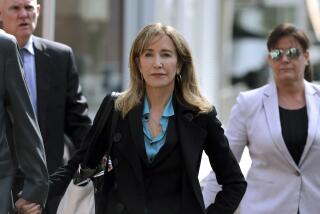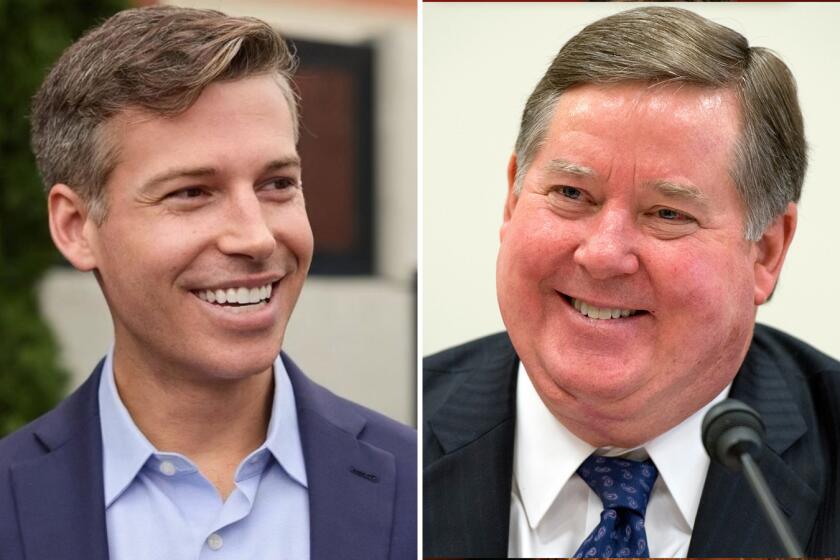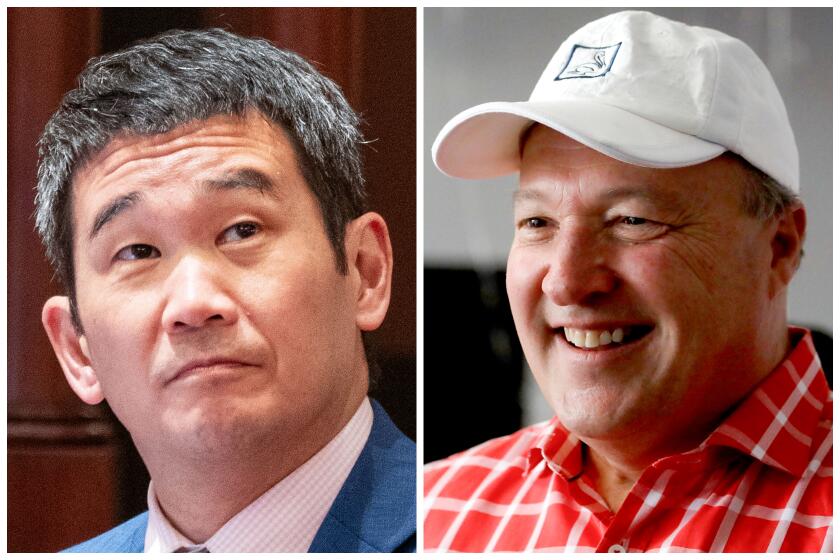Key college admissions scandal figure will cooperate with feds in blow to accused parents
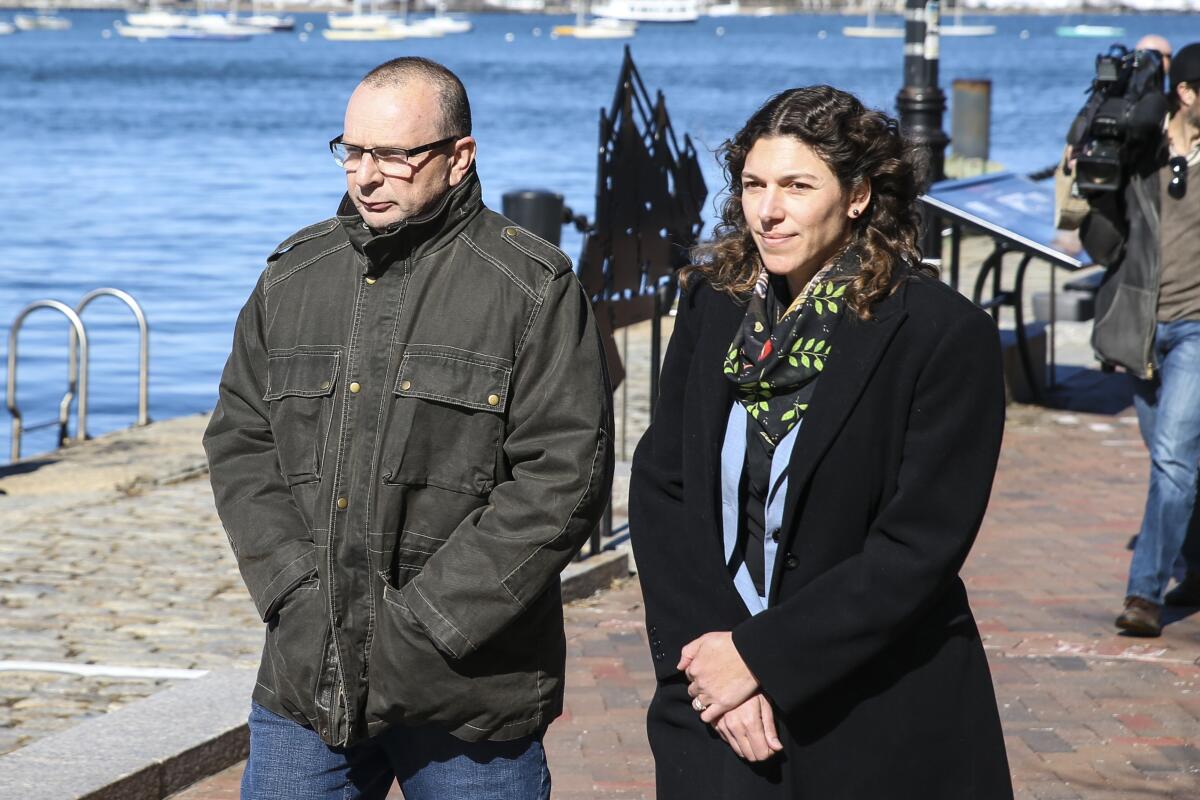
The head of a West Hollywood private school where dozens of wealthy parents allegedly had their children’s SAT and ACT exams fixed signaled on Tuesday that he would plead guilty and cooperate with investigators, a blow to parents who have maintained their innocence in the college admissions scandal.
The plea is a coup for prosecutors, who are likely to use the administrator to support their argument that William “Rick” Singer and his clients were entwined in a criminal conspiracy to get their children into elite colleges.
Igor Dvorskiy, director of the West Hollywood College Preparatory School, will plead guilty to conspiracy to commit racketeering no later than Nov. 20, according to a plea agreement filed Tuesday in federal court. He has agreed to cooperate with the government and testify at trial, if called. Melissa Weinberger, an attorney for Dvorskiy, declined to comment.
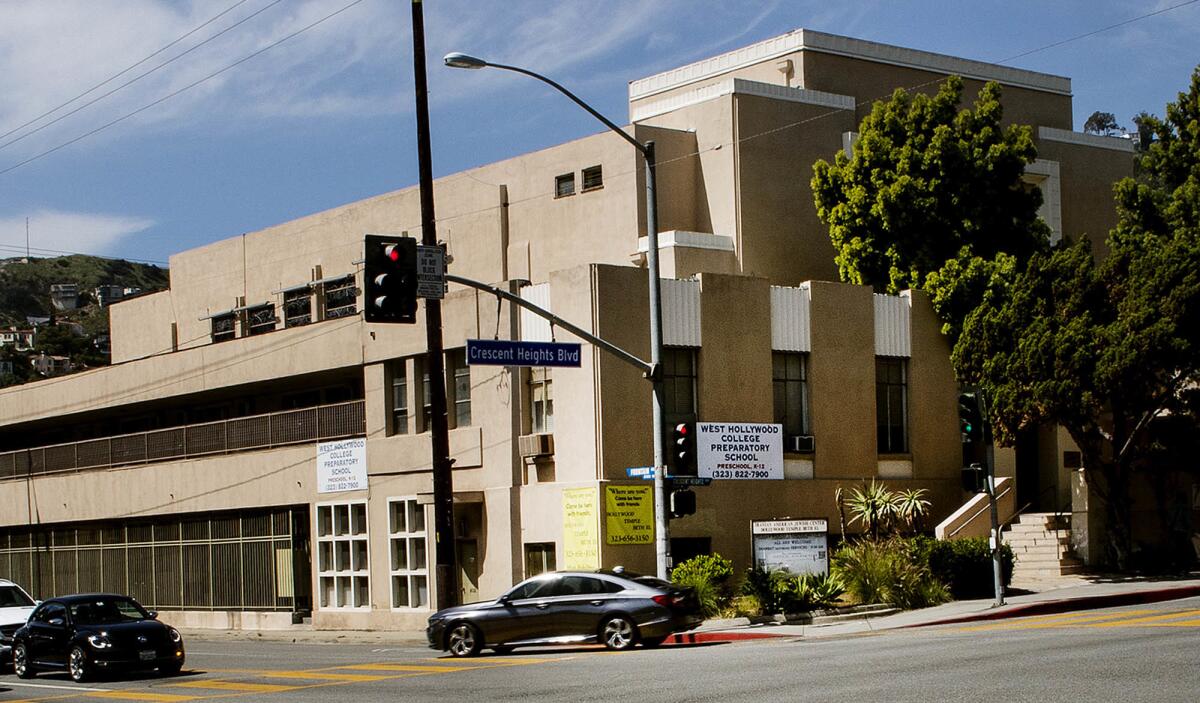
In signing a plea deal, Dvorskiy, a resident of Sherman Oaks, acknowledged he took bribes from Singer, the Newport Beach consultant at the heart of the admissions scandal, and in turn allowed a test-fixing fraud to be perpetrated for years at his school.
Singer would direct his clients — wealthy parents from the Westside of Los Angeles, Silicon Valley, Manhattan and elsewhere — to register their children to take their SAT or ACT exams at Dvorskiy’s school. There, Mark Riddell, Singer’s Harvard-educated accomplice, would correct the children’s answers after they took the test, or tell them which answers to bubble in.
In a call recorded by the FBI, Singer explained the test-rigging scheme to Gordon Caplan, the co-chairman of an international law firm. Caplan worried his residence — he lives in Greenwich, Conn. — could raise flags if his daughter took her ACT in West Hollywood.
Wouldn’t the testing agencies wonder, Caplan asked, “Why the hell is somebody living in Greenwich taking it out in California?”
Make up a reason for being in Los Angeles, Singer told him.
“‘We’re going to a — a bat mitzvah,’” Singer instructed Caplan to tell the testing agencies. “Or, ‘We’re going to a wedding. We’re going to be gone that weekend.’”
Caplan’s daughter took her ACT exam at Dvorskiy’s school in December 2018, where it was fixed by Riddell.
Caplan pleaded guilty to conspiracy to commit fraud and will be sentenced Thursday.
From as early as October 2018 and continuing through this past February, federal agents staked out Dvorskiy’s school on the corner of Fountain Avenue and Crescent Heights Boulevard, watching Singer’s clients drop off their children at 7 a.m. Saturday mornings and pick them up around noon.
Singer charged his clients between $15,000 and $75,000 to fix a test, of which Dvorskiy and Riddell would receive a cut. Dvorskiy typically took $10,000 per test, prosecutors say.
Dvorskiy was paid by the College Board and ACT to administer their exams, responsible for returning filled-out SATs and ACTs to the testing agencies and certifying they had been completed honestly, prosecutors said.
His cooperation is likely to bolster the government’s argument that Singer’s clients knew Dvorskiy was acting as an agent of the College Board and the ACT, and knowingly conspired with Singer to deprive the testing agencies of Dvorskiy’s honest employment. Of the 19 parents who are fighting the government’s allegations, eight are accused of paying Singer to rig their children’s exams at Dvorskiy’s school.
The College Board didn’t immediately respond to a request for comment. ACT referred to an earlier statement that condemned “the few bad individuals who have attempted to undermine a fair testing environment.”
Singer ran a similar scam out of a public high school in Houston, prosecutors allege, but on a smaller scale than at Dvorskiy’s school. Niki Williams, a teacher at Jack Yates High School, pocketed bribes and allowed Riddell to take exams for the children of Singer’s clients or correct their answers afterward, according to an indictment charging Williams with conspiracy to commit racketeering. She has pleaded not guilty.
Singer was arrested last September, cooperated with investigators, and pleaded guilty to four felonies in March. Riddell pleaded guilty in April to conspiracy to commit fraud and money laundering, and is cooperating with the government. Both men are awaiting sentencing.
Dvorskiy, who was arrested March 12, had initially pleaded not guilty to racketeering conspiracy. His reversal on Tuesday follows a number of guilty pleas, from 15 parents, five university coaches and an accountant who have admitted conspiring with Singer.
If prosecutors determine Dvorskiy furnished them with useful information, they have agreed to recommend a sentence below the range laid out in his plea deal, which calls for 24 to 30 months in prison. He has also agreed to forfeit the $149,540 prosecutors say he reaped from the scheme.
Two parents — Caplan, the Greenwich lawyer, and Agustin Huneeus, a Bay Area vintner — will be sentenced this week. Both men have acknowledged paying to rig their daughters’ exams at Dvorskiy’s school.
Three parents have been sentenced so far to prison terms ranging from two weeks to four months: Felicity Huffman was given 14 days; Devin Sloane, four months; and Stephen Semprevivo, four months.
Caplan’s attorneys have asked U.S. District Judge Indira Talwani to spare him prison when he appears before her Thursday. Prosecutors want Caplan imprisoned for eight months.
Huneeus’ attorneys said a punishment of two months in prison would be fair for the vintner, who has admitted paying Singer $50,000 to rig his daughter’s SAT and agreeing to pay another $250,000 to have her admitted to USC as a fraudulent water polo recruit. Prosecutors say Huneeus should be incarcerated for 15 months. He will appear before Talwani on Friday.
Eighteen parents have pleaded not guilty to conspiracy to commit fraud and money laundering. A 19th, Xiaoning Sui, was arrested last month in Spain; prosecutors are now pursuing her extradition.
More to Read
Sign up for Essential California
The most important California stories and recommendations in your inbox every morning.
You may occasionally receive promotional content from the Los Angeles Times.

